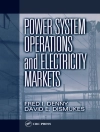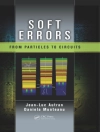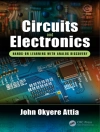This book brings together cross-disciplinary research on carbon capture, utilization, and storage (CCUS) to examine the impact of implementing CCUS tools and technologies on emissions reduction and sustainable development in cities and large metropolitan areas. An expert group of global contributors provides in-depth technical discussions, case studies, and examples with an emphasis on the worldwide application of the latest developments in technology, protocols, implementation, and application of CCUS in power and energy systems.
Carbon Capture, Utilization, and Storage Technologies: Towards More Sustainable Cities is an essential multidisciplinary reference for researchers and industry practitioners from engineering, energy, computer science, data science, economics, and operational research working in the energy and environmental fields.
Innehållsförteckning
The CCUS Technologies and Standards.- Carbon Capture Technologies and Methods.- Carbon Utilization Technologies and Methods.-Carbon Storage Technologies and Methods.- Integration of CCUS Technologies in the Modern Energy Systems.- Technical Evaluation of CCUS in Modern Energy Systems.- Economic Evaluation of CCUS in Modern Energy Systems.- The CCUS Required Infrastructures in Sustainable Cities.- The Policy Makers Role in CCUS Development in Smart Cities.- The Impact of CCUS Technologies on the Electricity Market.-The Role of CCUS Technologies in the Sustainable Smart Cities.- The Role of CCUS Technologies in Climate Change Mitigation.- Environmental Evaluation of CCUS Impact in Sustainable Cities.
Om författaren
Ali Ahmadian, Ph.D., is a visiting professor with the Department of Chemical Engineering at the University of Waterloo, Canada, and he is an associate professor with the Department of Electrical Engineering at the University of Bonab, Iran. He holds a Ph.D. in Electrical Engineering with a strong background in power and energy systems analysis. He has published more than 100 papers in journals and conference proceedings and received several national and international research awards. His research interests include transportation electrification, energy and environment, energy economics, and smart grid.
Ali Elkamel, Ph.D., is a Professor of Chemical Engineering at the University of Waterloo, where he is also cross-appointed in Systems Design Engineering. Professor Elkamel holds a BSc in Chemical Engineering and a BSc in Mathematics from the Colorado School of Mines, an MS in Chemical Engineering from the University of Colorado Boulder, and a Ph.D. in Chemical Engineering from Purdue University. His specific research interests are in computer-aided modeling, optimization, and simulation with applications to energy production planning, carbon management, sustainable operations, and product design. He is currently focusing on research projects related to gas production and processing, integration of renewable energy in oil and gas operations, and the utilization of data analytics (digitalization), machine learning, and artificial intelligence (AI) to improve the process and enterprise-wide efficiency and profitability. Professor Elkamel’s activities include supervising post-doctorate and research associates, advising graduate and undergraduate students, and participating in both university and professional societal activities. He is also engaged in initiating and leading academic and industrial teams and establishing international and regional research collaboration programs with industrial partners, national laboratories, and international research institutes. Prof. Elkamel has supervised over 70 graduate students (of which 30 are Ph Ds) and more than 25 post-doctoral research fellows. He has been funded for several research projects by the government and industry. He has more than 260 journal articles, 137 proceedings, and 30 book chapters, and has been an invited speaker on numerous occasions at academic institutions throughout the world and national and international conferences. He is a co-author of four books, including Planning of Refinery and Petrochemical Operations (Wiley-VCH, 2013) and Environmentally Conscious Fossil Energy Production (Wiley, 2010).
Ali Almansoori, Ph.D., is a Professor of Chemical Engineering and Associate Provost for Education at Khalifa University – Abu Dhabi. He holds a BSc in Chemical Engineering with the highest distinction from Florida Institute of Technology, a Ph.D. in Chemical Engineering in the area of Process Systems Engineering from Imperial College London, and an Executive MBA from London Business School.
His specific research interests are in computer-aided modelling, optimization, and simulation with applications to energy system design, sustainable operations, and supply chain management. He has published over 90 journal articles (of which one appeared in the Science magazine), co-authored seven book chapters, presented more than 60 conference papers in local and international conferences or workshops, and supervised over 20 graduate students. He was the principal investigator of more than 10 projects, which were sponsored by industry and academia.
He is currently a theme lead at KU Research Innovation Center on CO2 and H2 (RICH) in the area of H2 Energy Systems. He has received 10 awards as a result of his research contributions and impact on the scientific community, including the Mohammed Bin Rashid Medal for Scientific Excellence in 2019 and the 2021 Khalifa Award for Education in the field of Higher Education.
Along with his academic experience, Prof. Almansoori has eight years of administrative experience in higher education. He was the Chair of the Department of Chemical Engineering, the Dean of the College of Engineering, and the Interim Senior Vice President for Academic Affairs. He also managed the portfolio of policy and performance in higher education at the Executive Council of Abu Dhabi during his secondment in 2013.












